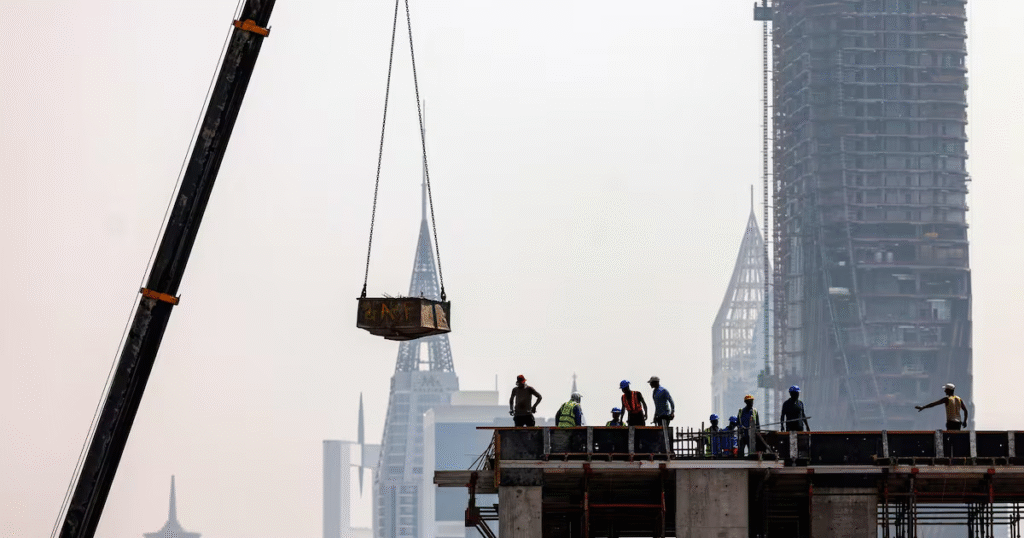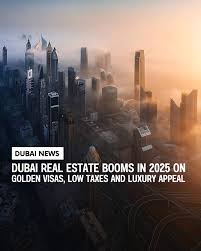
Dubai’s real estate market is booming in 2025. Prices are up, sales are strong, and luxury properties are in high demand. But there’s a surprising twist: buyers are becoming more careful and selective. Despite the market’s growth, many potential homeowners and investors are now taking their time, asking more questions, and turning down deals that don’t meet their exact needs.
This shift is creating a new trend — one where demand is still high, but decisions are slower and more thoughtful. Experts say this change shows that the Dubai property market is maturing.
The first quarter of 2025 showed impressive numbers. Property prices rose by nearly 15% compared to the same time last year, and sales of villas and high-end apartments continued to grow. Dubai Marina, Downtown Dubai, Palm Jumeirah, and Jumeirah Village Circle are still some of the hottest areas.
However, real estate agents say that while viewings are up, final decisions are taking longer. Buyers are more focused on value for money, future returns, and lifestyle fit. Many even revisit the same property two or three times before deciding.
“Five years ago, many buyers were driven by fear of missing out,” said Omar Sheikh, a senior agent at a leading Dubai real estate firm. “Now, even with rising prices, people are asking the right questions. They want to know about service charges, rental yields, future developments nearby, and resale value

So what’s causing this shift in buyer behavior? Experts believe there are several reasons:
Today’s buyers do a lot of research before even calling an agent. Many use online platforms, property comparison tools, and even AI-based investment apps to study prices, locations, and trends.
“They don’t just look at a pretty apartment,” said real estate consultant Fatima Khalid. “They compare it with ten others, check if the price is right, and look at the building’s history before making a move.”
With new developments launching every month, buyers have more options than ever before. Developers are offering attractive payment plans, free service for a few years, or even golden visa incentives. This makes buyers less likely to settle for the first option they see.
The Dubai market continues to attract investors from India, Russia, Europe, and China. With more global players entering the game, local and expat buyers feel the need to be more strategic. They don’t want to overpay in a market that’s getting international attention.
Many buyers are no longer just looking for investment returns. Since the pandemic, more people are buying homes they actually want to live in — not just rent out. That means things like community feel, building quality, schools, and healthcare nearby are becoming top concerns.
For sellers, this change means they need to up their game. A fresh coat of paint and good lighting might not be enough anymore. Today’s buyers expect clean paperwork, clear pricing, energy-efficient appliances, and well-maintained common areas.
Real estate agents also need to adapt. Quick deals are now rare. Agents who guide buyers patiently, answer detailed questions, and offer full transparency are more successful.
“It’s not just about location anymore,” explained real estate analyst John Mathews. “It’s about lifestyle, safety, community, and value. Agents must sell the full experience.”
Despite this rise in buyer caution, the overall Dubai market is still strong. Data from the Dubai Land Department shows a steady rise in the number of transactions and total market value.
In April 2025 alone, over 12,000 property deals were recorded, worth over AED 34 billion. That’s a 10% increase from April 2024.
Luxury properties are especially hot. Villas in Palm Jumeirah and Emirates Hills are being snapped up by ultra-wealthy buyers. At the same time, mid-range apartments in areas like JVC and Arjan are seeing high interest from young families and first-time buyers.
In response to changing buyer preferences, many developers are tweaking their offerings. New projects now include smart home systems, co-working spaces, kids’ areas, green spaces, and better finishes. Flexible payment options are also becoming a standard.
“There is demand, but it’s smart demand,” said the CEO of a Dubai-based development company. “Buyers don’t want hype. They want honesty, clarity, and value. So we’re designing for that.”

Dubai’s real estate market in 2025 is strong, but not blindly fast. Buyers are smarter, pickier, and more confident in walking away from deals that don’t suit them. This means sellers, agents, and developers need to listen more and sell better.
It may seem like a slowdown, but it’s actually a sign of maturity. A more thoughtful market helps avoid bubbles and builds trust. And in a global city like Dubai, that’s exactly what will keep the real estate industry growing for years to come.
Also read – Crypto Meets Property: Dubai’s Big 2025 Real Estate Shift
